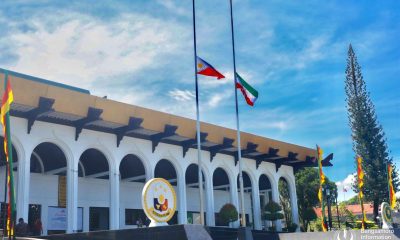MANILA – President Ferdinand R. Marcos Jr. on Thursday signed two new laws creating the Negros Island Region (NIR) and reforming real property valuation and assessment in the Philippines.
Marcos signed Republic Act (RA) 12000 or the Negros Island Region (NIR) Act, which unifies the provinces of Negros Occidental, including Bacolod City, Negros Oriental, and Siquijor into one administrative region.
He noted that this union is “long overdue” and makes “practical sense,” especially on Negros Island, where people are located on one island but are governed under separate administrative regions.
The law aims to promote administration decentralization, strengthen local autonomy, and accelerate economic, cultural, and social development.
“So, for decades now, Negrenses have endured the rigors of sea travel, unnecessary expenses, bureaucratic red tape, (and) inefficiency that this arrangement has brought, especially when there is a need to urgently access government services from regional centers on other islands,” Marcos said in his speech during the ceremonial signing of the two laws in Malacañan Palace.
“Equally glaring is the uneven growth and disparity of funding between the two provinces, which share many of the same natural resources and industries, such as sugar, tourism, (and) renewable energy.”
He said the new Negros Island Region would be a “bulwark of greater growth,” as well as a “conduit” for more effective and efficient delivery of essential services in the region.
The NIR, the President added, is also envisioned as one of the centers of development in the Visayas, further accelerating socio-economic development and enabling strategic convergence in terms of resources, investments, and economic planning.
“Indeed, in unity, there is always strength. And that is what we are building, and I trust that the people of the newly established Negros Island Region will work together to complement each other’s strengths to build a more united and flourishing Negrense community,” he said.
Marcos pledged that the national government would provide the necessary assistance to bring the new region “up to speed as quickly as possible.”
Real Property Valuation, Assessment Reform Act
The President also signed RA 12001, also known as the Real Property Valuation and Assessment Reform Act (RPVARA), a priority legislation of the administration that is included in the Common Legislative Agenda of the Legislative-Executive Development Advisory Council (LEDAC).
RPVARA streamlines and enhances the real property valuation and assessment system through a uniform real property appraisal that is compliant with international standards.
It also adopts the prevailing market value as the single real property valuation base for assessing the real property tax.
Marcos said the new law is in line with the administration’s 8-Point Socioeconomic Agenda, which prioritizes bureaucratic efficiency through transparency, digitalization, and the implementation of innovative work processes in the civil service.
“This new law is borne out of the necessity and the realization that there is a need to enhance the country’s tax collection system so we can generate revenues, generate jobs, (and) investments all over the country. No longer will we rely on the outdated valuation system,” he said.
Marcos said the administration has adopted a strategy that would instill and encourage long-term and consistent text compliance by providing a two-year amnesty on interests and penalties for taxpayers with unpaid real property tax.
He also thanked the House of Representatives and the Senate for passing the two important laws, which only showed their support for the administration’s endeavors.
Before ending his speech, the President called on all government agencies to efficiently and effectively implement the NIR Act and the RPVARA to its fullest extent “so our people may reap its benefits at the soonest possible time.
”
In a statement, Senator Juan Miguel Zubiri, who authored the Senate bill on the NIR Act, said the law will bring the government closer to the people and spur economic, cultural, and social development.
“The NIR has long been a dream of mine and of my fellow Negrenses. We have long wanted to have our own region, with our own government offices readily accessible to our people,” Zubiri said.
“I thank the President for signing this into law, Senator JV Ejercito for championing this with us in the Senate, and of course our NIR representatives and officials who worked closely with us in crafting and defending this law. This is going to bring in a wave of development into the province, and mark the start of new golden age for Negros,” he said.
Congress urged to pass priority bills
He also called on both houses of Congress to pass the priority bills certified by LEDAC to steer national development and improve the conditions of Filipinos.
“To our fellow workers in both the houses of Congress, I implore that before the year ends, that laws which are more inclusive, responsive, and people-centered to be passed. And we are deep in discussion about that,” he said.
“Let’s continue to collaborate and work closely on these matters. With the vision of the new Philippines and the cooperation of every Bagong Pilipino, I’m confident (that) we will achieve inclusive growth, a resilient society, and a globally competitive economy.” (With a report from Wilnard Bacelonia/PNA)




























